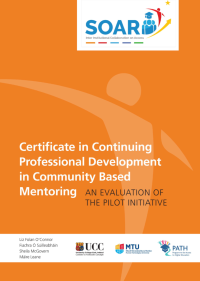The UNIC website uses cookies to improve your experience. Read our full Cookie Policy here.
This case study outlines the results of a recent evaluation of a community mentoring programme aimed at increasing access to higher education and lifelong learning for underrepresented groups.
Virtual Place
Date
Partners

In recent decades, there has been growing recognition of the importance of fostering links between the university and the community. Activities to ensure deeper and more meaningful engagement between the university and community – referred to as ‘university-community partnerships’ – have included various research and real-world problem-solving initiatives.
One recent university-community initiative that the UNIC partner institution University College Cork (UCC) has been involved in is the development of a community mentoring programme – the Certificate in Continuing Professional Development in Community Based mentoring. This programme was developed for community-based mentors in their efforts to support underrepresented groups to access lifelong learning and higher education. The initiative was developed through a higher education institution (HEI)-Community partnership comprising UCC, Munster Technological University (MTU), Cork City Learning Neighbourhoods and the Cork Migrant Centre. The core aim of this partnership was to collaborate on devising and delivering strategies to increase access to higher education for underrepresented groups.
As part of this initiative, a new evaluation report has now been published based on research conducted between November 2021 and February 2022. Among its findings, the evaluation highlights the importance of a co-equal and reciprocal approach for successful university-community partnerships and the benefits of a collaborative design and open approach to lecture content. Students of the mentoring programme reported that it gave them the skills and confidence to become mentors in their communities, and they highlighted the “critical consciousness” needed to encourage others to consider further/higher education and lifelong opportunities.
Recommendations of the evaluation study include the:
UNIC Superdiversity Academy